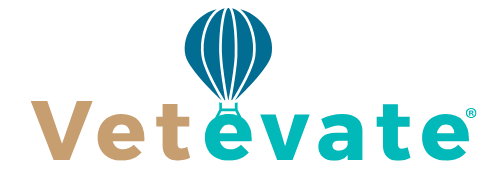When you’re hiring for veterinary positions, whether you’re managing a single clinic or overseeing a network of animal hospitals, choosing where to post your open roles can significantly impact the quality and quantity of applicants you attract. With so many veterinary job boards out there—some niche, some general—it’s essential to make an informed decision. Posting to the wrong platform can result in wasted time, money, and energy. But when you post to a high-quality, well-trafficked veterinary job board, you increase your chances of reaching candidates who are qualified, motivated, and actively seeking new opportunities.
The first and most obvious sign that a veterinary job board is worth your investment is the relevance of its audience. A board should be specifically designed for veterinary professionals, not just lumped in with broader healthcare or animal-related listings. Look closely at the types of jobs already posted. Are they in line with your roles—whether that’s DVMs, vet techs, practice managers, kennel assistants, or specialists in exotics or emergency care? The more closely the board caters to your target hires, the more likely you are to attract candidates who meet your criteria. A board that is too general or filled with unrelated listings may dilute your visibility and attract the wrong applicants.
Another key indicator is how often the board is updated and how active the job seeker community appears to be. A quality veterinary job board will show signs of frequent use—new listings appear regularly, jobs are taken down when filled, and the platform itself feels alive. If you see postings from respected employers in the veterinary field or frequent updates to content and features, that’s a sign that candidates also view this platform as a trusted resource. Candidates tend to flock where employers go, and vice versa. If your competitors are consistently using a certain platform, there’s a reason. That job board has likely built a reputation in the veterinary community that draws talent and attention.
You can also evaluate the job board’s traffic and reach. While some platforms make this data public, others may share it upon request. Ask how many users visit the site monthly, how many are job seekers, and what types of roles tend to generate the most engagement. If you’re hiring for a specific location or specialty, see if the site has a solid footprint in that niche. For example, if you’re looking for large animal veterinarians in rural areas, or urgent care vets in major metro markets, the board’s audience should reflect that reach. A truly effective veterinary job board doesn’t just list jobs—it connects you with the right people in the right places.
Tools, Support, and Employer Experience
While visibility is important, the experience you have as an employer on the site is just as critical. A reputable veterinary job board will offer more than a space to post jobs—it should support your hiring goals with tools, insights, and guidance. Consider the user experience from the employer’s side. Is the process of posting a job intuitive and efficient? Can you manage applications through a dashboard, or integrate the board with your ATS (applicant tracking system)? Is it easy to update or repost roles without starting from scratch? These small details can make a big difference when you’re juggling multiple openings or hiring on a tight schedule.
Also look at the support offered to employers. Does the site provide customer service or account reps who understand veterinary hiring? Can they help you optimize your postings, suggest best practices, or help you promote your roles more effectively? Some of the best job boards go a step further by offering enhanced employer branding options—allowing you to create a profile, post videos, share photos of your practice, and tell your clinic’s story. These tools help you stand out in a competitive market where culture and values increasingly influence where candidates choose to work.
Another factor that’s often overlooked is the ability to track your results. A solid job board should offer analytics so you can see how your job post is performing. How many views did it get? How many applicants clicked through or applied? Which postings drew the most attention? Access to performance data allows you to refine your listings over time and ensure your investment is paying off. It also helps you determine whether the job board is delivering real value or simply adding another task to your to-do list.
The Board’s Reputation in the Veterinary Profession
Reputation goes a long way when it comes to choosing a veterinary job board. Just as candidates are drawn to companies with strong employer brands, employers benefit from posting on platforms with a strong professional reputation. Pay attention to what others in the industry are saying. Do veterinary professionals recommend the board to their peers? Is it affiliated with respected organizations like the AVMA, NAVTA, or regional veterinary medical associations? Does the board partner with veterinary schools, conferences, or continuing education providers? If so, chances are good that it is well-integrated into the professional landscape and regularly engages with active and upcoming talent.
You might also look into whether the board creates or shares original content. Job boards that host webinars, publish hiring tips, or offer salary benchmarks are doing more than serving as a listing service—they’re positioning themselves as thought leaders in the veterinary employment space. These are the kinds of boards that job seekers visit not just when they need a job, but when they want to learn more about their career options, get industry news, or compare benefits and compensation trends. That level of engagement drives more repeat traffic—and keeps your postings in front of candidates who are serious about their careers.
A good litmus test is to ask yourself this: If you were a veterinary job seeker, would you visit this site? Would it feel helpful, targeted, and trustworthy? If the answer is yes, then it’s likely a good place to post your job. If the site feels dated, hard to use, or too broad, your target candidates may not be there in the first place. The best veterinary job boards are those that feel like part of the fabric of the profession—not just a digital bulletin board. When the platform demonstrates a commitment to the veterinary community, both job seekers and employers benefit.
In summary, choosing the right veterinary job board requires more than picking the first option that comes up in a search. You want to align yourself with a site that is regularly updated, easy to use, trusted by the industry, and actively engaged with veterinary professionals. Look for a board that offers meaningful support and visibility, and one that allows your clinic or company to tell its story. When you find a site that checks all those boxes, posting jobs becomes more than a task—it becomes a strategic part of your hiring success. A smart job board partnership helps you attract not just more applicants, but the right ones—saving time, strengthening your team, and ultimately improving patient care.




